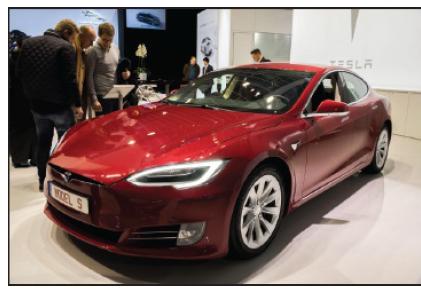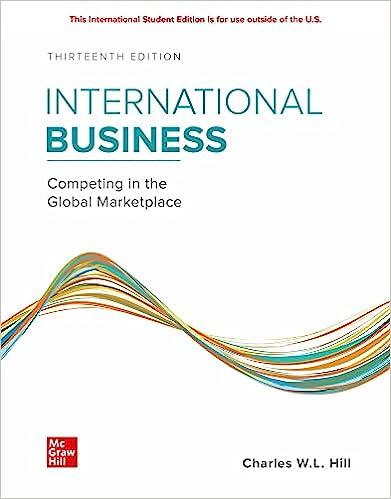Tesla Inc. (tesla.com) is an American automobile manufacturer, energy storage producer, and solar panel manufacturer headquartered in
Question:
Tesla Inc. (tesla.com) is an American automobile manufacturer, energy storage producer, and solar panel manufacturer headquartered in Palo Alto, California. It specializes in electric cars, lithium-ion batteries, and residential solar panels via its subsidiary SolarCity. Most people, however, know the company as the maker of electric cars, often still referring to the old name of Tesla Motors. Tesla Inc. was founded as Tesla Motors in 2003 by Martin Eberhard and Marc Tarpenning. However, both the company and the general public also consider Elon Musk,
J.
B. Straubel, and Ian Wright as its co-founders. Today, the company has sales of over $7 billion, assets of some $25 billion, and more than 30,000 employees.
Tesla became a well-known entity following its production of the Tesla Roadster in 2008, the world’s first electric sports car. The second vehicle, an electric luxury sedan labeled Model S, hit the market in 2012. More than 150,000 cars of Model S type have been sold. This ranks Model S as the world’s second best-selling plug-in after the Nissan Leaf.
After Model S, Tesla went to market with Model X in 2015, a crossover SUV, and Model 3 in 2017 (code name “Tesla BlueStar” in the original business plan). Model 3 was unveiled in 2016, but was introduced into the market in the latter part of 2017 at a base price of $35,000 before any government incentives.
Government incentives are really the subject of this Tesla case. Normally, our focus in a case related to Chapter 20 would be on the financing of a company or accounting practices globally (as in the scenarios played out in the opening case on the Kraft Heinz Company and the closing case on Shoprite). However, financing and accounting practices worldwide come in many forms, and companies like Tesla have taken advantage of tremendous governments subsidies in various countries to sell their products in the global marketplace and be competitive with traditional car manufacturers such as Volkswagen, Toyota, and General Motors, to mention just a few of the top automobile makers in 2017. As such, the Tesla scenario is a perfect integrated case for this book: It relates to Chapter 20 on finance and accounting, but also serves multiple purposes in understanding the economics of the global marketplace.

For example, according to recent data from the European Automobile Manufacturers Association (ACEA), sales of electric cars (including plug-in hybrids) in 2017 were brisk across much of Europe. Sales of these kinds of cars rose by 80 percent compared with last year in eco-friendly Sweden, 78 percent in Germany, and 40 percent in Belgium. Across all European Union countries, electrical car sales grew by roughly 30 percent. However, the major exception was in Denmark, where sales went down by more than 60 percent. There was one simple reason for this drop: The Danish government phased out taxpayer subsidies to buy electric cars. Basically, the take on it from the Danish experience is that clean-energy vehicles are not attractive enough to (at least) the Danish customers to compete with more established traditional car brands without some form of taxpayer-backed subsidy.
Questions
1. Should companies like Tesla rely on government subsidies in selling their cars because they are better for the environment than traditional cars based on the old technology of traditional combustion engines? Basically, should the environmental issues be built into the competitiveness of the car pricing of electrical cars, or should supply and demand be the driver of the electrical cars’ prices?
2. Some governments are more likely to subsidize electric cars (and many other products) than other governments.
Denmark took a stand to not subsidize (for now) electric cars. Should such subsidies be up to each country or region in a country (e.g., California in the United States), or should there be a world standard enforced perhaps via the World Trade Organization, United Nations, or a similar organization?
3. Tesla had remarkable sales growth: from a startup (albeit with great financing) to $7 billion in sales with some $25 billion in assets. Does this mean that the Tesla business model was good, and the market reacted positively, government subsidies were generous, and the market favored the car brand because of it, or was it a combination of these factors, and if the latter, which factors?
4. If all government subsidies to electric cars went away worldwide, do you think Tesla would be as successful five years from now as it is today? (Given this idea, do you think Tesla would even exist in 10 years?)
Step by Step Answer:

ISE International Business Competing In The Global Marketplace
ISBN: 9781260575866
13th International Edition
Authors: Charles Hill





